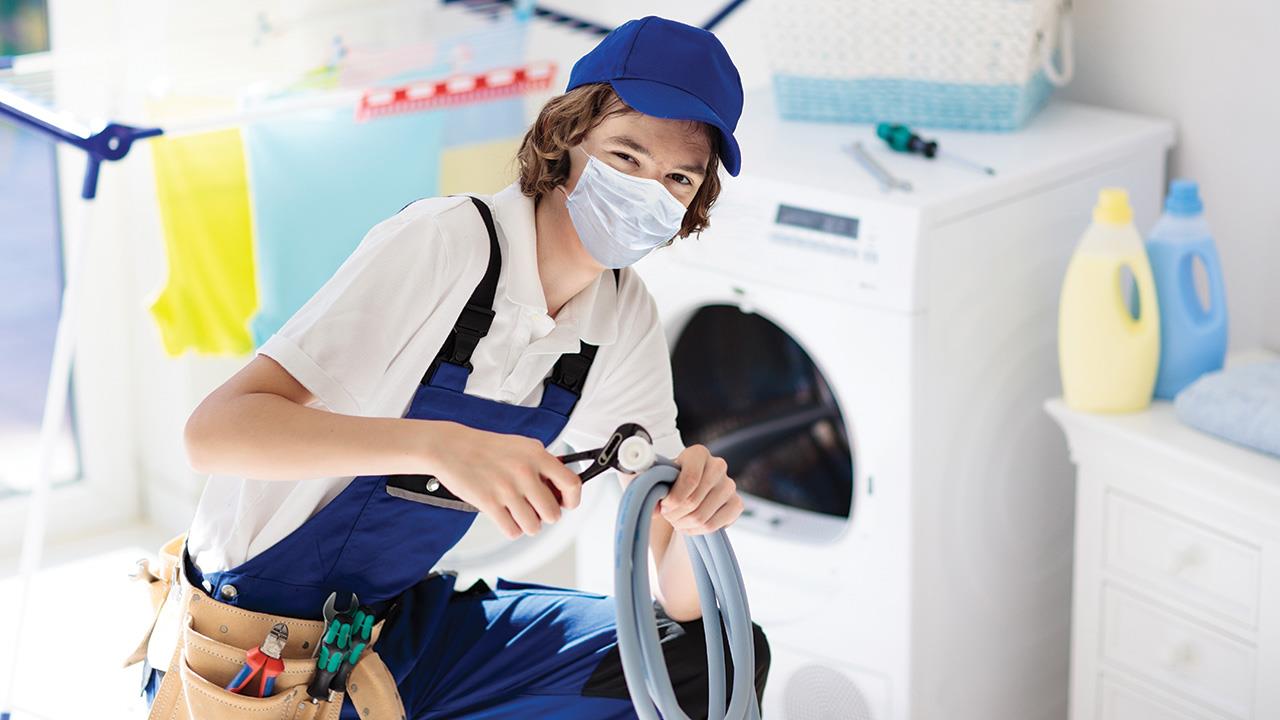

Colin Timmins, H&V Portfolio Manager at BEAMA, says the industry has a vital role to play in convincing the public that non-essential work can be carried out safely in their homes.
As the UK hopes to emerge from the lockdown that was needed to combat the COVID-19 pandemic, there is obviously a great focus on getting the economy back on track. The construction industry as a whole has been badly hit, and the full impact of that is probably yet to be revealed, but there will be a need for everyone to start looking at practical ways that we can start getting back to normal or, as many commentators put it, back to a ‘new normal’.
For installers of heating systems and controls, one of the biggest challenges could be convincing householders that work in their homes can be done safely, and therefore getting them to open their doors to people from outside their immediate family. Anecdotal evidence is that during the lockdown emergency repairs of heating systems have continued, but anything considered to be an improvement project has been put on hold. With heating rarely considered by families during the summer period, it is no surprise that things have slowed down.
While housebuilding has generally returned, although expected to be at lower productivity levels due to social distancing measures, this tends to only account for about a tenth of all boiler installations. It is boiler replacements in individual private homes that is the bigger challenge.
Government research a few years back indicated that 30% of boiler replacements were instigated by the boiler breaking down and it is fair to say that such instances would be classed as an ‘emergency’ and therefore householders would go ahead with the work regardless of any misgivings; they would find a way to get it done. Of course, it is also generally accepted that most boiler breakdowns happen in the winter months, and particularly at the start of the heating season when boilers are brought fully into operation after heating has not been required for several months.
The heating industry can’t really afford to wait for the first cold snap of the coming winter for work to pick up. We need to encourage, or reassure, customers who might get their boiler replaced for other reasons, which the research shows could be concerns about the current performance of their heating system, or as part of a wider renovation to the property.
The industry forecast published by the Construction Products Association in May this year noted that the historical drivers of repair, maintenance, and improvements in private housing is largely driven by sales of housing and consumer confidence. Unfortunately, both these factors have been affected. Property transactions were one of the areas badly affected by the lockdown, although at the time of writing there are some reports that sales in some parts of England have already recovered to pre-lockdown levels, which would be an encouraging sign, if correct.
Consumer confidence may take longer to recover given that there remains a real concern that unemployment will increase significantly as a result of the pandemic. Uncertainty can encourage people to focus on savings and to put off, for example, getting an extension built, so it is to be hoped that signs for the future can start to give a more positive feeling.
Despite the uncertainty, you could make the case for things picking up quickly when there are people who have spent their extra time at home during lockdown considering improvements that they would like to get carried out once government guidelines allowed them to do so. Allied to the fact that very few people will be spending money going away on holiday this summer, it could possibly lead to a boom in spending on home improvements. How pronounced or long lasting such a boom might be, especially when set against other economic factors, is very much open to question.
Where installers can certainly be proactive is in making sure that they’re fully aware of the guidance for safe working in people’s homes, and that potential customers are aware that these will be followed.
Householders’ reluctance to get work done in their homes should be possible to overcome if they can be satisfied that installers will follow safe working practices to the letter and make necessary consideration for the health and vulnerability of the occupants of any building they are working in.
BEAMA can help with that. A dedicated COVID-19 section on our website has a guide to help companies develop their guidelines for returning to work under safe conditions as we enter into the phased recovery of the sector.
You will also find a short video on safe working practices in consumers’ homes. This can be also shared with customers to help them know what to expect when work is done in their home. The aim is to give both the homeowner and the installer the confidence that they will not be put at risk during this work.
If you'd like to keep up-to-date with the latest developments in the heating and plumbing industry, why not subscribe to our weekly newsletters? Just click the button below and you can ensure all the latest industry news and new product information lands in your inbox every week.